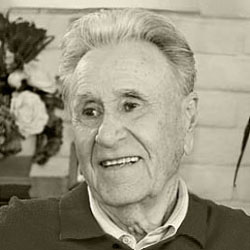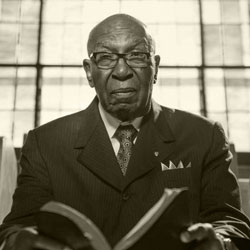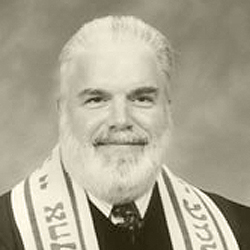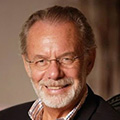Oklahoma, a land rich in natural beauty and cultural diversity, is not only known for its mesmerizing landscapes and vibrant communities but has also been home to numerous influential religious leaders who have left an indelible mark on the spiritual landscape of America.
From the vast prairies to the bustling cities, Oklahoma has nurtured and witnessed the rise of remarkable individuals who have dedicated their lives to spreading messages of faith, compassion, and enlightenment.
As we delve into their stories, we will encounter towering figures whose visions transcended boundaries, leaving an everlasting impact on both local communities and the world at large. Their unwavering commitment to their faith, coupled with their dedication to uplifting others, serves as a testament to the power of spirituality and the resilience of the human spirit.
Join us as we shine a light on these extraordinary individuals, whose contributions have shaped the spiritual landscape of Oklahoma and left a lasting impact on the lives of many. From the pioneers who laid the foundation for faith in the early days to the modern-day torchbearers, we will unveil the stories of their trials, triumphs, and the enduring wisdom they impart to future generations.
Oral Roberts
Oral Roberts, born on January 24, 1918, in Ada, Oklahoma, was a prominent televangelist, author, and faith healer who arguably shaped the culture and landscape of Oklahoma more than any other spiritual leader.
Though known the world over as one of the most influential faith healers and orators of his time, Roberts suffered from stuttering throughout his childhood and early teens and was stricken with tuberculosis in his later adolescence. These health setbacks, however, would be the fertile soil from which his purpose and character would spring.
Seeking to cure his ailments, his parents took him to a faith healer who was visiting Ada, George Muncy from Cleveland, Tennessee. It was this subsequent healing, and words from Muncy, that put Roberts on a path that would change his life and the landscape of evangelism forever.
“Until the Lord healed me at nearly 18 years of age, when I had tuberculosis, and stammered all my life, and was taken to a man in Ada, George Muncy from Cleveland, Tennessee who came with a big tent and prayed for the sick. And my brother Elmer came for me and carried me there in the back seat of his car. And that’s was the first time God spoke to me.
The first time I ever heard his voice. He said, ‘Son I’m going to heal you tonight, and you are going to take my healing power to your generation” and that was the beginning of my ministry.’”
— Oral Roberts
Chapter 3
Over time, Roberts rose to prominence locally, leading tent revivals and gaining a reputation as a powerful faith healer.
Growing in popularity in the mid-20th century through his healing ministry and captivating television programs, he won audiences with his charismatic preaching style and his emphasis on the power of faith in healing. Through his television broadcasts, he reached millions of viewers, spreading his message of hope, spirituality, and the potential for divine intervention in people's lives.
In 1963, Roberts founded Oral Roberts University (ORU) in Tulsa, Oklahoma. The establishment of this Christian institution of higher learning showcased Roberts' commitment to integrating faith and education. ORU aimed to provide students with a comprehensive education while nurturing their spiritual growth and fostering a strong Christian foundation. The university has since grown and developed into a respected academic institution with various programs and a diverse student body.
Beyond his ministry and the founding of ORU, Roberts played a pivotal role in the growth and expansion of televangelism. He utilized the power of television to reach a broader audience and spread his message of faith and healing. His pioneering efforts in religious broadcasting paved the way for future televangelists and had a lasting impact on the way religious messages are communicated and received.
Oral Roberts' influence, however, extended far beyond his immediate followers and students. His charismatic presence and dedication to his ministry inspired many individuals to explore their own faith and seek spiritual renewal. Through his preaching, he offered hope, encouragement, and a reminder of the possibilities that lie within the realm of faith. His contributions to religious broadcasting and Christian education continue to shape the way faith is shared and experienced by millions of people worldwide.
Looking to the future and the generations of spiritual leaders to come, Roberts had simple advice: Listen to God’s voice first.
“...I always heard God’s voice first–I know people say that God doesn’t speak to people, but he spoke to me.”
— Oral Roberts
Chapter 18
Roberts passed away on December 15, 2009, but his legacy as a televangelist, faith healer, and founder of Oral Roberts University lives on, leaving an enduring mark on the world of religious communication and the spiritual lives of those he touched.
Dr. G. Calvin McCutchen
Dr. G. Calvin McCutchen’s life was dedicated to his faith and the many causes he fervently supported, including civil rights activism, community engagement, and education. Born in 1924, he grew up in a segregated society, witnessing the hardships faced by African Americans. However, he was determined to make a difference and pursued higher education, earning degrees in Education and Divinity.
McCutchen's career was closely tied to his faith and his commitment to the Baptist church. He served as the pastor of Mt. Zion Baptist Church in Tulsa, Oklahoma, for over 50 years, leading the congregation and making significant improvements to the church infrastructure. His efforts to raise funds for a family life center through a bond program demonstrated his leadership and dedication to his community.
Beyond his role as a pastor, McCutchen actively participated in the civil rights movement, advocating for equality and justice. He joined marches and rallies, including the historic March on Washington in 1963. He had the privilege of hosting Martin Luther King Jr. in Tulsa, arranging for him to speak at First Baptist Church North Tulsa and driving him to Oklahoma City for a rally.
McCutchen's involvement in the community extended beyond his church duties. He wrote columns for the Oklahoma Eagle, conducted revivals, gave lectures, and supported various initiatives aimed at curbing violence and drug-related issues. He even walked the streets in the early morning hours, engaging with young people and offering guidance and support.
“Oh, oh yeah. I joined, well, it’s not in existence anymore, what they call a ten-point coalition group, it was, patterned after what were they doing in Boston, Massachusetts, to break up the violence in the community and to curb the drug rings and that sort of thing. We organized a ten-point group here in Tulsa. We did a lot of tutoring of students and that sort of thing. Amos Electric gave us one of his houses for a meeting place.
… Out late at night they had gathering places where a lot of young people would gather. It was the Cheek and Check out on Peoria. And late at night kids would be out there in droves, just hanging around out there. Sometimes we would go out there, a group of ministers, you know, go out there and just talk with them.
… You know, I think the kids, some good kids, you know, but I think there was just a matter of being a weekend and have some place to hangout. Not violent or anything like that.”
— Dr. G. Calvin McCutchen
Chapter 14
Throughout his life, McCutchen emphasized the importance of education and encouraged young people to be honest and resilient:
“Well, students from all walks of life, ministerial students and all, be true to yourself, be honest in your dealing with your fellow man, and then, of course, if you make some failures, try to be bigger than the mistake that you made.”
— Dr. G. Calvin McCutchen
Chapter 14
He recognized that not everything he undertook succeeded, but he persevered, staying dedicated to his work and always willing to lend a helping hand.
McCutchen's life is one of faith, community service, activism, and unwavering commitment. His legacy as a pastor, civil rights advocate, and mentor to countless individuals lives on, inspiring future generations to make a positive difference in their communities.
Rabbi Charles Sherman
Rabbi Charles Sherman's journey began in a tight-knit Jewish community in Pittsburgh, Pennsylvania on December 14, 1943. Growing up just a stone's throw away from the Tree of Life Synagogue, his childhood was infused with a profound sense of Jewish identity and communal connection. From a young age, Rabbi Sherman was captivated by the teachings of Judaism and inspired by the examples set by his parents, who instilled in him a deep sense of compassion and justice.
Driven by a sincere desire to make a positive impact on the world, Rabbi Sherman found his calling to become a rabbi -- despite his father reminding him about how little money rabbis made.
It was a profound realization that his spiritual path lay in dedicating his life to the service of others, fostering a deep connection with his community, and promoting the values of love, justice, and peace. This calling would become the foundation of his unwavering commitment to faith, leadership, and interfaith collaboration.
This calling, as fate would have it, led him to Tulsa. And though Sherman embraced the community, it didn’t have a reputation for embracing minority populations:
“Let me be real blunt. When Nancy and Charles Sherman and children moved to Tulsa, Oklahoma, in 1976, there was not a Jewish member of the Southern Hills Country Club, nor a black member. And that’s no longer true on either score. Changes have taken place, are taking place. Progress is being made. Are we there yet, of a colorblind or totally color-appreciative society? No. But my early years of the rabbinic here, the police were raiding gay nightclubs and beating up the peaceful patrons. That doesn’t happen today. We have an equality center that is the envy of the country.”
— Rabbi Charles Sherman
Chapter 17
Throughout his life, Sherman was fortunate to have influential mentors who nurtured his spiritual growth and deepened his understanding of Judaism's teachings. These mentors instilled in him the values of empathy, inclusivity, and the pursuit of social justice. Guided by their wisdom, he embarked on a lifelong quest to make Judaism relevant and accessible to people from all walks of life.
Sherman’s effort to pour into the lives of Tulsans from all backgrounds and beliefs bore tremendous fruit in the face of a flooding disaster at Temple Israel Tulsa in 1984. Hearing news of the destruction caused by the water, the community Sherman and the Temple had long served came out in full-force to lend whatever aid they could.
“I never had witnessed such destruction as when I walked down the steps as far as I could get into the basement. I didn’t realize water could do that kind of damage. All of the pews, as they dried, these beautiful wooden pews, cracked, all of them. So the question was whether we had to replace all of this or not?
The community response, people who lived in the neighborhood, descended upon the temple. Some of them with mops and buckets and brooms. “What can we do to help?” These were not Jewish people, these were our neighbors.”
— Rabbi Charles Sherman
Chapter 8
Despite his quest to sow compassion and unity -- and like all who live -- his path was not without tragedy. On October 27, 2018, Pittsburgh’s Tree of Life Synagogue -- a place of fond memories and family -- became the site of a horrific act of violence.
A gunman attacked the synagogue during Shabbat services, claiming the lives of eleven worshippers and leaving an indelible mark on the community. Rabbi Sherman, upon hearing the news of the shooting, was devastated by the loss of his longtime friends, synagogue members, and fellow believers.
Despite this unimaginable grief, he emerged as a source of strength, providing solace, support, and guidance to those affected by the senseless act of hatred.
Though his heart and spirit were tested in this act of brutality, his work to unite others never faltered. His commitment to fostering interfaith harmony became a cornerstone of his work. Believing that understanding and respect can bridge divides, he actively engaged in interfaith dialogue, seeking common ground among diverse religious communities. Through his efforts, Rabbi Sherman aimed to dismantle barriers, combat prejudice, and promote unity by emphasizing the shared values that unite people of faith.
When considering the future of Tulsa, the country, and future generations who may be led in faith, Rabbi Sherman offers a reminder to build on your strengths:
“I’m one of those who believes very much in calling of serving people. To be able to study and to serve a wide variety of people, building on your own strength. So I love teaching. Therefore, have tried to take advantage of every opportunity to teach. I love preaching, and so, I preach regularly. This is the kind of calling in which someone else loves pastoral work can really emphasize that part of the calling.“
— Rabbi Charles Sherman
Chapter 12
Lessons We Can Learn from Oklahoma’s Famous Religious Leaders
As we’ve journeyed throughout the lives of these incredible people of faith, there are key lessons we can glean and apply to our own lives in order to live life more richly, regardless of our background or affiliation.
Play to Your Strengths. Rabbi Sherman showed us that his success in life and his continued passion for his work comes from his recognition that his work suits his strengths. In turn, this allows him to be invigorated by his work, rather than drained by its demands.
Be True to Yourself. Dr. G. Calvin McCutchen’s life and advice touches on age-old wisdom: “To thine own self be true.” By being honest with yourself, and in turn, others, you live a life firmly planted in peace and authenticity.
Hold to Your Convictions. Oral Roberts’ life was squarely following the convictions he held true in his faith. Dedicated to his values and convictions, Oral led a purpose-driven life that impacted the lives of countless Oklahomans.
Conclusion
Thank you for joining us in visiting and learning from these influential religious leaders. Educational articles like these, and the many others available in our Learning Center, are made possible only by the contributions of readers like you.


